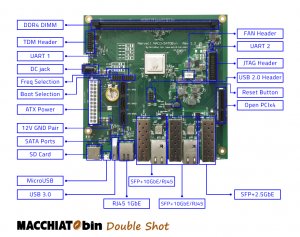erek
[H]F Junkie
- Joined
- Dec 19, 2005
- Messages
- 10,893
Excited?
"Meanwhile the Cortex-X1 is a big change for Arm. And that change has less to do with the technology of the cores, and more with the business decisions that it now opens up for the company, although both are intertwined. For years many people were wondering why the company didn't design a core that could more closely compete with what Apple had built. In my view, one of the reasons for that was that Arm has always been constrained by the need to create a “one core fits all” design that could fit all of their customers’ needs – and not just the few flagship SoC designs.
The Cortex-X program here effectively unshackles Arm from these business limitations, and it allows the company to provide the best of both worlds. As a result, the A78 continues the company’s bread & butter design philosophy of power-performance-area leadership, whilst the X1 and its successors can now aim for the stars in terms of performance, without such strict area usage or power consumption limitations.
In this regard, the X1 seems really, really impressive. The 30% IPC improvement over the A77 is astounding and not something I had expected from the company this generation. The company has been incessantly beating the drum of their annual projected 20-25% improvements in performance – a pace which is currently well beyond what the competition has been able to achieve. These most recent projected performance figures are getting crazy close to the best that what we’ve seeing from the x86 players out there right now. That’s exciting for Arm, and should be worrying for the competition."
https://www.anandtech.com/show/15813/arm-cortex-a78-cortex-x1-cpu-ip-diverging
"Meanwhile the Cortex-X1 is a big change for Arm. And that change has less to do with the technology of the cores, and more with the business decisions that it now opens up for the company, although both are intertwined. For years many people were wondering why the company didn't design a core that could more closely compete with what Apple had built. In my view, one of the reasons for that was that Arm has always been constrained by the need to create a “one core fits all” design that could fit all of their customers’ needs – and not just the few flagship SoC designs.
The Cortex-X program here effectively unshackles Arm from these business limitations, and it allows the company to provide the best of both worlds. As a result, the A78 continues the company’s bread & butter design philosophy of power-performance-area leadership, whilst the X1 and its successors can now aim for the stars in terms of performance, without such strict area usage or power consumption limitations.
In this regard, the X1 seems really, really impressive. The 30% IPC improvement over the A77 is astounding and not something I had expected from the company this generation. The company has been incessantly beating the drum of their annual projected 20-25% improvements in performance – a pace which is currently well beyond what the competition has been able to achieve. These most recent projected performance figures are getting crazy close to the best that what we’ve seeing from the x86 players out there right now. That’s exciting for Arm, and should be worrying for the competition."
https://www.anandtech.com/show/15813/arm-cortex-a78-cortex-x1-cpu-ip-diverging
![[H]ard|Forum](/styles/hardforum/xenforo/logo_dark.png)
